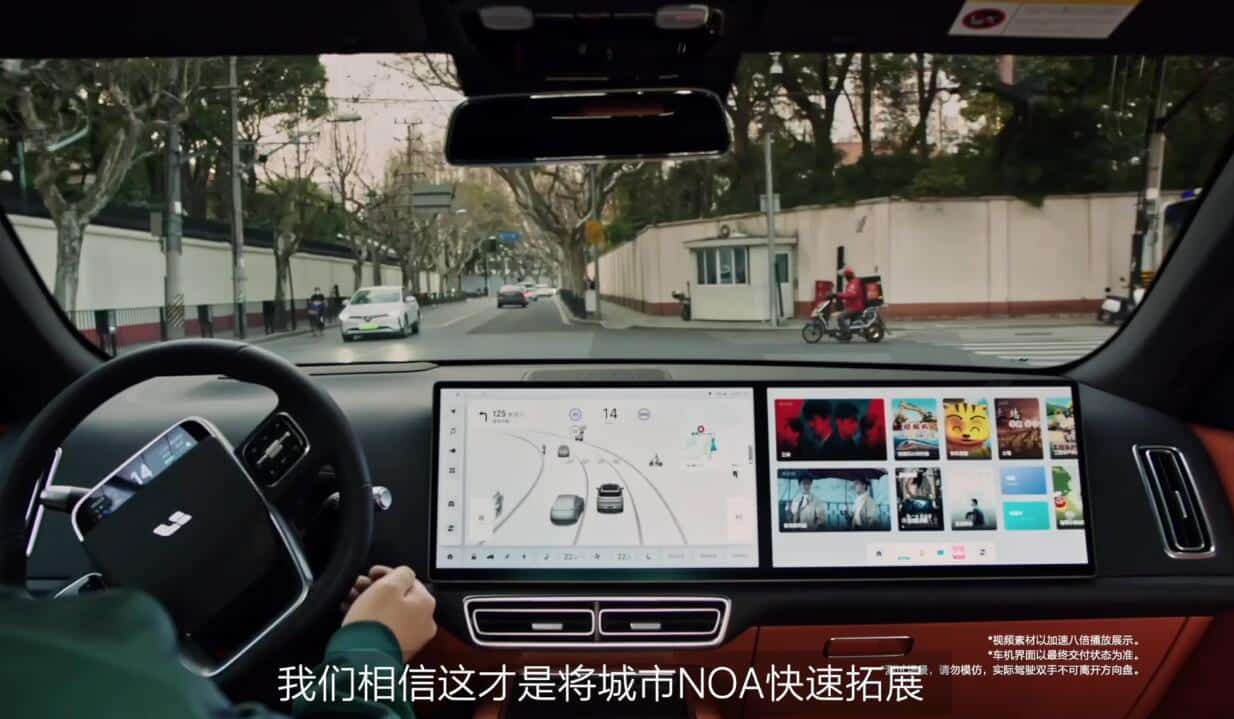Li Auto said City NOA's real-time HDMapNet-based road structure awareness algorithm can sense and make decisions in real-time based on its surroundings, just like a human.
Li Auto (NASDAQ: LI) will start allowing some users to participate in beta testing of its Tesla FSD-like advanced assisted driving feature later this year, set to become one of the first local car companies to offer the feature.
The extended-range electric vehicle (EREV) maker unveiled the plan at the launch of its new SUV, the Li L7, on Wednesday, saying it will begin the first user testing of City NOA (Navigation on ADAS) in the fourth quarter.
The test will be for vehicles equipped with AD Max, Li Auto's intelligent driving system that uses sensing, decision-making, planning and control software developed by it in-house.
AD Max is the assisted driving system featured in the Max versions of Li Auto vehicles, with two NVIDIA Orin X smart driving chips and a LiDAR.
Li Auto models are currently available in Air, Pro and Max versions, with the Air version first announced at yesterday's launch for the Li L7 and Li L8, and the company's flagship SUV, the Li L9, currently available only in Max.
The company's Pro version features the AD Pro assisted driving system, the first intelligent driving system to be equipped with the Journey 5 chip from local chipmaker Horizon Robotics.
Li Auto's City NOA is based on HDMapNet's real-time road structure awareness algorithm that can sense and make decisions in real time based on the surrounding environment just like a human, the company said at yesterday's launch.
The approach frees assisted driving systems from an over-reliance on high-precision maps, which is the effective technology path that will lead to the rapid expansion of City NOA and to fully autonomous driving in the future, Li Auto said.
Here's a demo video of City NOA that Li Auto released yesterday.
To date, Li Auto vehicles have driven a total of more than 510 million kilometers of smart driving, including 87.89 million kilometers of highway NOA navigation-assisted driving.
Li L8 and Li L9 have accumulated 160 million kilometers of active learning after delivery, with a total of 7.2 million hours of active learning, the company said.
To accelerate the development of autonomous driving technology, Li Auto has built a supercomputing cluster with a computing power of 1,000 PFLOPS and an automated labeling capacity of up to 35,000 clips per day, according to the company.
Based on a 200-person annotation team, the company's automated annotation efficiency has improved 2,635 times over manual annotation efficiency, it said.
Notably, the supercomputing cluster exceeds the 600 PFLOPS of Xpeng's (NYSE: XPEV) self-driving computing center "Fuyao" and the 670 PFLOPS of Haomo's MANA OASIS.
Li Auto is the latest to demonstrate ambition in the development of advanced assisted driving technology, with a vision of becoming the world's leading artificial intelligence company by 2030.
In the electric vehicle space, City NOA, which is based on BEV sensing and Transformer models and can be trained end-to-end without relying on high-precision maps, will be available by the end of 2023, Li Auto founder, chairman and CEO Li Xiang said in a January 28 all-staff letter.
This will be an important starting point for software 2.0's transformation of the physical world, Li added.
In China, Xpeng is the electric vehicle company that is making faster progress in autonomous driving.
On September 17, 2022, Xpeng announced that its City Navigation Guided Pilot (City NGP) feature became available on a pilot basis in Guangzhou, where the company is headquartered, making it the first Chinese car brand to introduce advanced driver assistance system (ADAS) features for complex urban traffic situations to the mass market.
Some Xpeng P5 customers in Guangzhou were able to gain access to City NGP via an OTA update at that time.
On October 21, Xpeng began making City NGP available to all eligible P5 sedans in Guangzhou, including those equipped with LiDARs and with XPilot 3.5 software.
Nio (NYSE: NIO) announced NAD (Nio Autonomous Driving), its Tesla FSD-like software package, at the launch of the ET7 sedan at the Nio Day 2020 event on January 9, 2021.
The full feature package of NAD will be available on a subscription basis at a cost of RMB 680 per month, although the software is not yet available.
